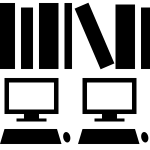 One of the trends at UBC that I’m excited about is the increasing support of the UBC Library for open education. I wanted to call attention to a couple of updates on the open front that are coming from the Library. First, the UBC Scholarly Communications and Copyright Office has posted new copyright guidelines for open courses and OER. As the introduction to the guidelines state:
One of the trends at UBC that I’m excited about is the increasing support of the UBC Library for open education. I wanted to call attention to a couple of updates on the open front that are coming from the Library. First, the UBC Scholarly Communications and Copyright Office has posted new copyright guidelines for open courses and OER. As the introduction to the guidelines state:
To create and preserve knowledge in a way that opens and facilitates the dissemination of knowledge to the world, UBC instructors are encouraged to utilize Creative Commons licenses, digital repositories and other open access channels to distribute their teaching materials broadly. These guidelines are intended to help instructors and course support teams make responsible use of third-party copyrighted materials in courses or in educational resources that will be shared openly on the Internet.
I think this is an important resource (disclosure: I was part of a group that helped review/draft the guidelines) as instructors are often worried that by embracing open pedagogies and open courses, they will run afoul of copyright laws. In my experience, the opposite is true, those instructors who are embracing open are often much more knowledgable and compliant about their copyright footprint than those behind firewalls. However, being able to point to a clear resource on how copyright works on the open Internet is a great first step to pre-empting copyright concerns for open education. Even better, the resource clearly states the Copyright Office’s commitment for providing direct support for navigating the various shades of copyright grey in teaching in the open. Related, the Copyright Office has also published a general guide on Creative Commons.
Another update is from UBC’s institutional repository, cIRcle. In cIRcle, users already have the ability to select and attach a Creative Commons License to their work thus stipulating how others can share, remix, or reuse their work. However, the folks over at cIRcle recently released version 2.0 of their standard license that users grant to the repository for the purpose of archiving their content. For the first time, the license (pdf):
will provide re-use rights. The Re-use rights spell out the conditions under which people who find your work in cIRcle are allowed to re-use that work. This Creative Commons license is known as the Attribution-NonCommercial-NoDerivs, or CC BY-NC-ND license.”
By baking in reuse rights directly into the new license, the folks at cIRcle are clearly highlighting the value of UBC’s intellectual output and underscoring how the institutional repository is also an OER repository.
Too often the conversation about open education is “why open?”, not “why not open?” The Library, though, is working to shift that outlook.
__
Library Icon by Pieter J. Smits from the Noun Project; CC-BY-3.0
